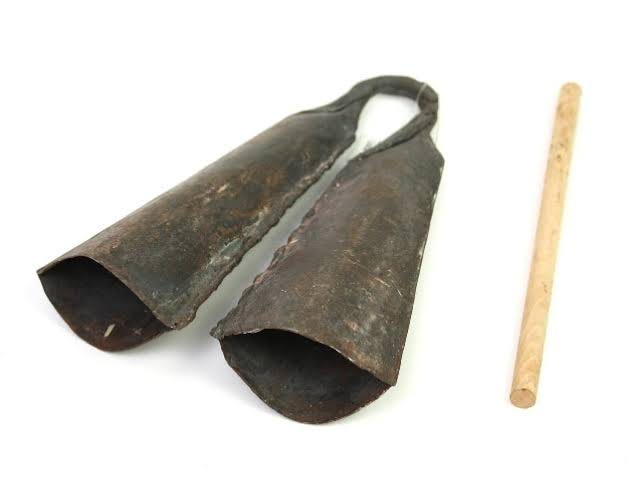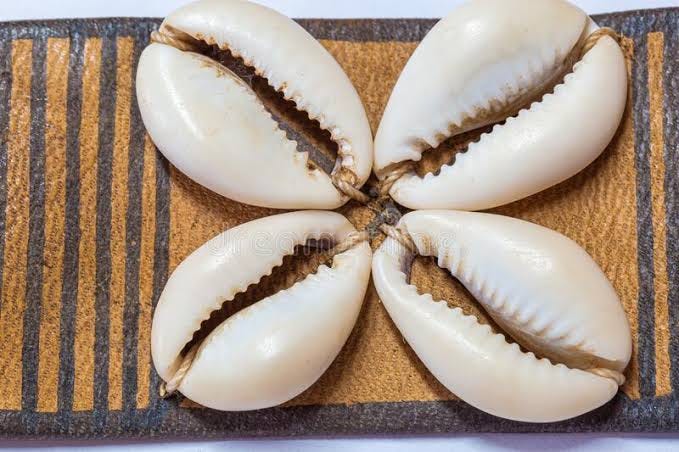Hi there,
I trust you're doing good. It's a delight to share with you the second issue of this Newsletter. Get a water and let's proceed.
1.
So today, we'll travel down to the root, and as deep as we can, let's dig.
Sometime, I remembered those days more than two decades ago when I would ask my sisters to help deliver a letter to my crush whenever they came for a visit.
A polygamous family, some of us lived with father and my mother at Sango Ota, while others lived at Abeokuta with our other mothers. They visit us during school vacations while we visit during the Ileya Festival.
So my sisters would deliver my letters to B. upon their return to Abeokuta. The other day, I imagined if I was alive when there was no writing, how could I have sent my message to her secretly?
And I found answers that took me through what I tagged communication and civilization in the Yorùbá parlance. I began to understand how communication evolved till date.
In one of his recent interviews, the Poet Laureate, Sir Tade Ipadeola gave the meaning of country to be "The Landscape of Speech," from the Yoruba connotation of it which is Orílẹ̀-èdè. This interpretation by Tade Ipadeola inspired me, and was an eye-opener.
But I will like to reinterpret it as "The Landscape of Language" because Èdè is actually language while Speech is gbólóhùn or ọ̀rọ̀.
Be that as it may, the gravamen of my discourse is to reveal that language goes deep into the root of a nation: erase a nation's language and the nation disappears.
In Government class, we understood that while a nation has common language and culture, a nation state is a collection of various ethnics and tribes, which is the fate of Nigeria.
So, the Yoruba tribe alone is a nation, so are the Igbo, Hausa, Fulani, Ijaw, Ikwere and the many others. This is not me encouraging cessation. In fact, I'm not interested in the controversial conversation.
If you ask me, I will push for the coming together of all the West-African countries so that as we have South Africa, we'll also have West Africa — a powerful, strong condiment of nations tied by one currency and bound borders, competing with the United States of America in Art, Science and Technology.
I have such strong believe in diversity. But do we collectively see that possiblity here? Is the possibility of one Nigeria certain by 2050? Whichever way we want to go, let it be bloodless. Amēn 🤲🏾.
Yes o, I'm a typical Yoruba man. We no too like wàhálà like that 😀. Coward you say? 🙄 Okay! Maybe someday I will address the reason behind my cowardice under the title Nigeria To Be or Not To Be.
2.
Bringing it back to the crux, Yorùbá as a landscape of one language, i.e a nation, how were they communicating before the advent of writing?
Definitely they were speaking, but if I want to send a message to my girlfriend in faraway village without the messenger knowing its content or context, what would I have done back then when there was no writing?
And that's what I meant by communication and civilization in the Yorúbá parlance.
In the first Covid-19 lockdown in 2020, I shared on my WhatsApp status the titles of the chapbooks I was working on at the time. They were five of them:
Across the Full Moon (a collection of haiku and senryū)
Tongueless Secrets (a collection of poems)
Fireplace (a collection of poems)
A Gun and House Dust (a collection of poems)
Dust and Rust (a collection of haibun)
Across the Full Moon has now been published by the Mamba Africa Press of Kumasi, Ghana; Tongueless Secrets by Ethel Press of Philadelphia, US; but Dust and Rust is still unpublished.
For “Fireplace” and “A Gun and House Dust,” I combined the two chapbooks to make a full-length collection which I titled "Aubade at Night or Serenade in the Morning." Heavy, right? 😉 That too is to be published by Flowersong Press of McAllen, Texas. It should get here this September.
But this is where I am leading you:
“A Gun & House Dust”
What does this mean?
In the Yoruba parlance, apart from spoken words, there were other forms of communication such as body language and sign or symbol language (similar to hieroglyphs).
3.
The symbol language is called Àrokò. With this, a sender send some items through someone to another person. It may be enclosed when intended to be secret. The messenger won't know the content. But the receiver upon unveiling it gets the message.
So when the Yorùbá sends you “a gun and a wrap of house dust,” it's a solidarity message – that you're not alone in the war you're fighting at that point, that you'll have their optimum support in all ramifications.
Let me take it further! Another sign item is the cowry. They are ordinarily used as ornaments to beautify things, and originally as money for exchange but are also used as àrokò.
If I send you two cowries, bound them to face each other, I'm telling you I have agreed with you on a particular matter we discussed earlier.
If I send you three cowries, it means I disagree with you or there is a confusion. Thus inconclusive or indifferent.
So if I had wanted to communicate with B. back then, I will send her six cowries tied together. That means I have missed her a lot and I'm longing to see her as soon as possible.🥰 Six in Yoruba is ẹ̀fà. The verb root of ẹ̀fà is to draw. The virtue of which I am asking to be drawn closer to her.
If I send you one cowry, strung with thread, it means something unpleasant is happening around me. And I want you to come to me to salvage the situation.
The sending of Ìrùkẹ̀rẹ̀ (fly whisk) and cowry shells from one monarch to another is a request for agreement or solidarity or farewell.
On a final note: If I ask you to help take a chewing stick to a lady around you, I am actually requesting her to please accept my earlier proposal.
But if she's already my bae and I am away, sending a chewing stick to her means I am professing to her of my unflinching love and giving her assurance.
This is the first part of two articles, the second part can be read here. While this part examines communication simplicita, the second part reveals how it evolved, hence, the civilization.
So when next you see me gathering cowries, do not fear, I might be preparing a message for the loml. 😍
From now moving forward, my Newsletter will be coming to your inbox every Thursday at Two-Thirty (pun & alliteration intended 😉).
Till then, I will love to hear from you. What's on your mind? Leave a comment below.
If you've not subscribed to this Newsletter, Àdìtú, do that now:
Cheers 🥂






Keep it up my barrister
Wow! This is so beautiful. Full of wisdom. I really enjoyed reading it. Thanks for sharing this awesome and wisdom-filled message with us, sir. I've really learnt some things. May God bless you richly, sir.
PS: I didn't get the pun o. Thursday and Two-Thirty. 😀